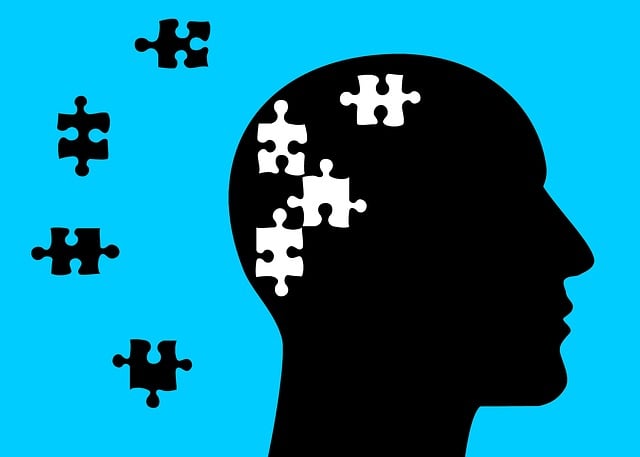Crisis intervention through therapy for young adults, focusing on family counseling and resilience building, offers immediate support and long-term solutions. Mental health professionals empower individuals and families with effective communication, emotional regulation techniques, and stress reduction methods to navigate turbulent emotions and build stronger bonds. Post-crisis support includes personalized sessions for self-awareness, conflict resolution, and integrating evidence-based practices to enhance mental wellness.
In times of crisis, effective intervention strategies are paramount. This article guides counselors through vital roles in understanding and responding to emotional turmoil. We explore tailored approaches for young adults and family counseling, offering practical strategies for navigating crises. From therapy sessions that help individuals process emotions to post-crisis support systems fostering recovery, each section delves into essential components of crisis intervention. By implementing these comprehensive strategies, counselors can provide effective, compassionate care during and after challenging situations.
- Understanding Crisis Intervention: A Vital Role for Counselors
- Therapy for Young Adults: Navigating Emotional Turmoil
- Family Counseling: Building Resilience in Times of Crisis
- Practical Strategies for Effective Interventions
- Post-Crisis Support and Recovery: A Comprehensive Approach
Understanding Crisis Intervention: A Vital Role for Counselors

Crisis intervention plays a pivotal role in providing immediate support and guidance to individuals grappling with traumatic or highly stressful situations. As professionals, counselors are equipped to offer a safe space for expression and emotional healing processes. Through active listening and empathy building strategies, they facilitate clients’ ability to process their experiences and gain new perspectives, serving as a crucial step towards recovery.
When faced with crises, especially in the context of young adults seeking therapy or family counseling, the role of counselors becomes even more vital. They help individuals navigate turbulent emotions, offering tools for coping mechanisms and promoting mental wellness. Moreover, by integrating effective communication techniques, counselors can foster deep connections, ensuring clients feel understood and supported throughout their emotional healing journeys. This approach not only benefits the individual in the moment but also equips them with long-lasting strategies to confront future challenges.
Therapy for Young Adults: Navigating Emotional Turmoil

For young adults grappling with emotional turmoil, therapy offers a lifeline. This form of therapy for young adults goes beyond traditional counseling to foster resilience building and mood management. Through family counseling, individuals can explore their relationships as a source of support or tension, learning coping mechanisms to navigate internal storms.
Professionals in mental health play a pivotal role in this process by implementing risk management planning. By teaching effective communication strategies, helping clients identify triggers, and providing tools for stress reduction, therapists empower young adults to manage their emotional well-being. This holistic approach not only addresses immediate crises but also equips individuals with lasting skills to thrive even amidst life’s challenges.
Family Counseling: Building Resilience in Times of Crisis

Family counseling plays a pivotal role in crisis intervention by focusing on building resilience within the family unit. This type of therapy for young adults empowers families to navigate challenging situations together, fostering open communication and understanding. Through structured sessions, families learn effective coping strategies, enhance problem-solving skills, and develop stronger bonds that can help them weather future crises.
In the context of mental illness stigma reduction efforts, family counseling also promotes public awareness campaigns that emphasize the importance of early intervention and support. By normalizing conversations about mental health within families, these sessions reduce the likelihood of individuals facing stigma when seeking therapy later in life. Stress management techniques taught during family counseling further equip family members to support one another through emotional and psychological challenges, ultimately contributing to a healthier and more resilient community.
Practical Strategies for Effective Interventions

In crisis intervention settings, particularly with young adults, practical strategies are key to effective support. One powerful tool is family counseling, which involves bringing together individuals and their families to address issues in a collaborative environment. This approach recognizes that crises often have systemic roots, and by engaging family members, counselors can gain valuable insights into the dynamics at play. Through open dialogue, counselors facilitate improved communication strategies within families, fostering an atmosphere of understanding and support. By teaching young adults healthy coping mechanisms, such as emotional regulation techniques, counselors empower them to manage stress and difficult emotions effectively.
Additionally, incorporating mindfulness meditation into the intervention process can help individuals cultivate present-moment awareness and emotional detachment. This practice enables young adults to better understand their triggers and responses, promoting a sense of calm during crises. By combining family counseling with these evidence-based techniques, counselors can provide holistic support tailored to each individual’s unique needs, ultimately enhancing the effectiveness of crisis interventions for young adults.
Post-Crisis Support and Recovery: A Comprehensive Approach

Post-crisis support is an integral part of the recovery process for young adults. It involves a comprehensive approach that extends beyond immediate intervention. Therapy sessions tailored for this demographic focus on fostering self-awareness exercises to help individuals understand and manage their emotions effectively. By exploring the underlying causes and triggers, young adults can develop coping strategies that are both sustainable and healthy.
Family counseling plays a significant role in the recovery journey, providing a safe space for open communication. This collaborative process strengthens family bonds, enhances social skills training, and teaches valuable conflict resolution techniques. Additionally, incorporating stress reduction methods into the post-crisis support system equips young adults with tools to navigate future challenges, ensuring their mental well-being is prioritized.
In conclusion, crisis intervention plays a pivotal role in supporting individuals and families during challenging times. From understanding the essence of crisis intervention to implementing practical strategies, this article has explored various aspects crucial for counselors. As we navigate the complexities of modern life, especially focusing on therapy for young adults and family counseling, these strategies can help foster resilience and recovery. By adopting a comprehensive approach that includes post-crisis support, we can ensure individuals are equipped to overcome adversity and build a brighter future.











